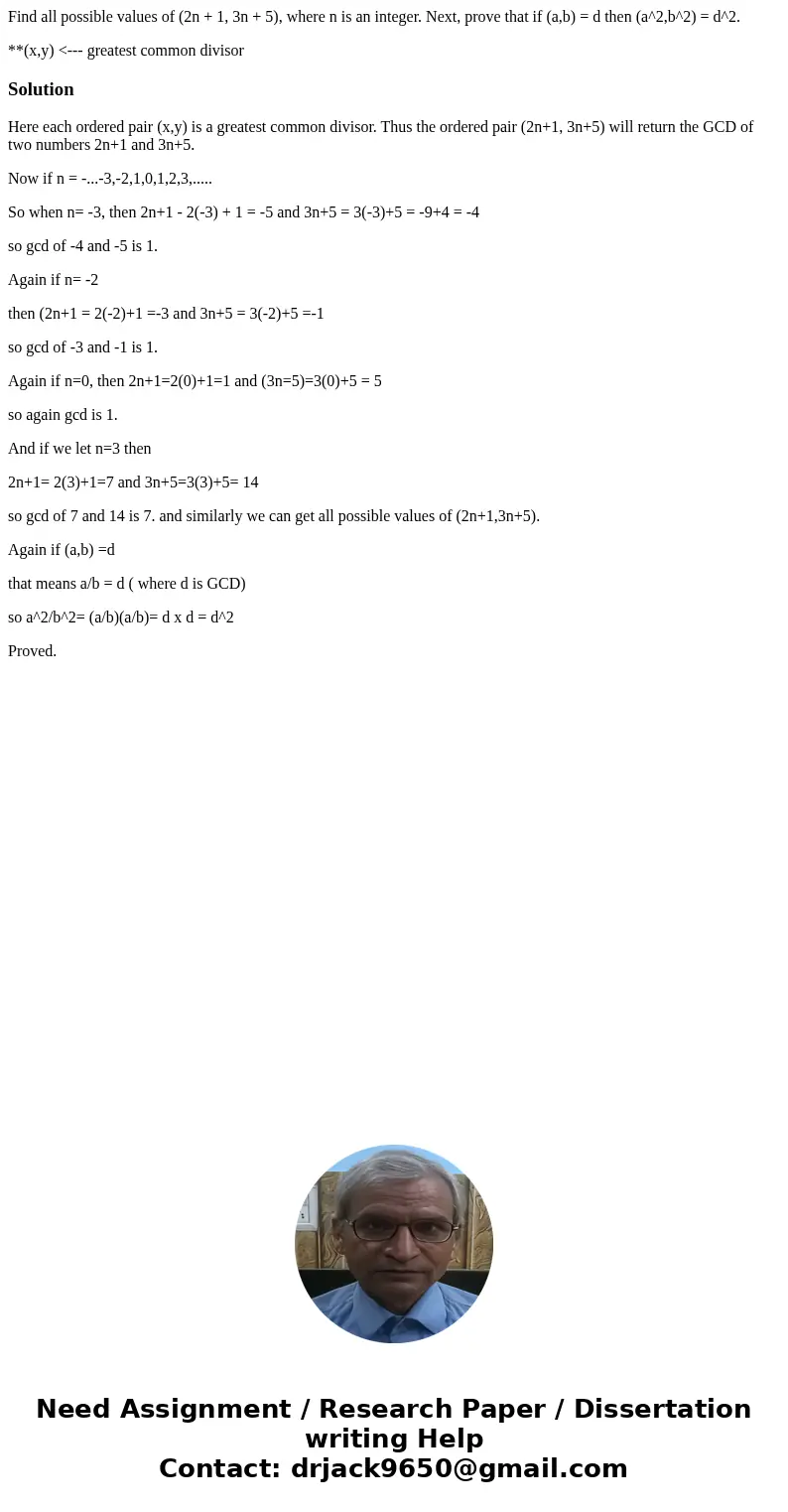Find all possible values of 2n 1 3n 5 where n is an intege
Find all possible values of (2n + 1, 3n + 5), where n is an integer. Next, prove that if (a,b) = d then (a^2,b^2) = d^2.
**(x,y) <--- greatest common divisor
Solution
Here each ordered pair (x,y) is a greatest common divisor. Thus the ordered pair (2n+1, 3n+5) will return the GCD of two numbers 2n+1 and 3n+5.
Now if n = -...-3,-2,1,0,1,2,3,.....
So when n= -3, then 2n+1 - 2(-3) + 1 = -5 and 3n+5 = 3(-3)+5 = -9+4 = -4
so gcd of -4 and -5 is 1.
Again if n= -2
then (2n+1 = 2(-2)+1 =-3 and 3n+5 = 3(-2)+5 =-1
so gcd of -3 and -1 is 1.
Again if n=0, then 2n+1=2(0)+1=1 and (3n=5)=3(0)+5 = 5
so again gcd is 1.
And if we let n=3 then
2n+1= 2(3)+1=7 and 3n+5=3(3)+5= 14
so gcd of 7 and 14 is 7. and similarly we can get all possible values of (2n+1,3n+5).
Again if (a,b) =d
that means a/b = d ( where d is GCD)
so a^2/b^2= (a/b)(a/b)= d x d = d^2
Proved.

 Homework Sourse
Homework Sourse